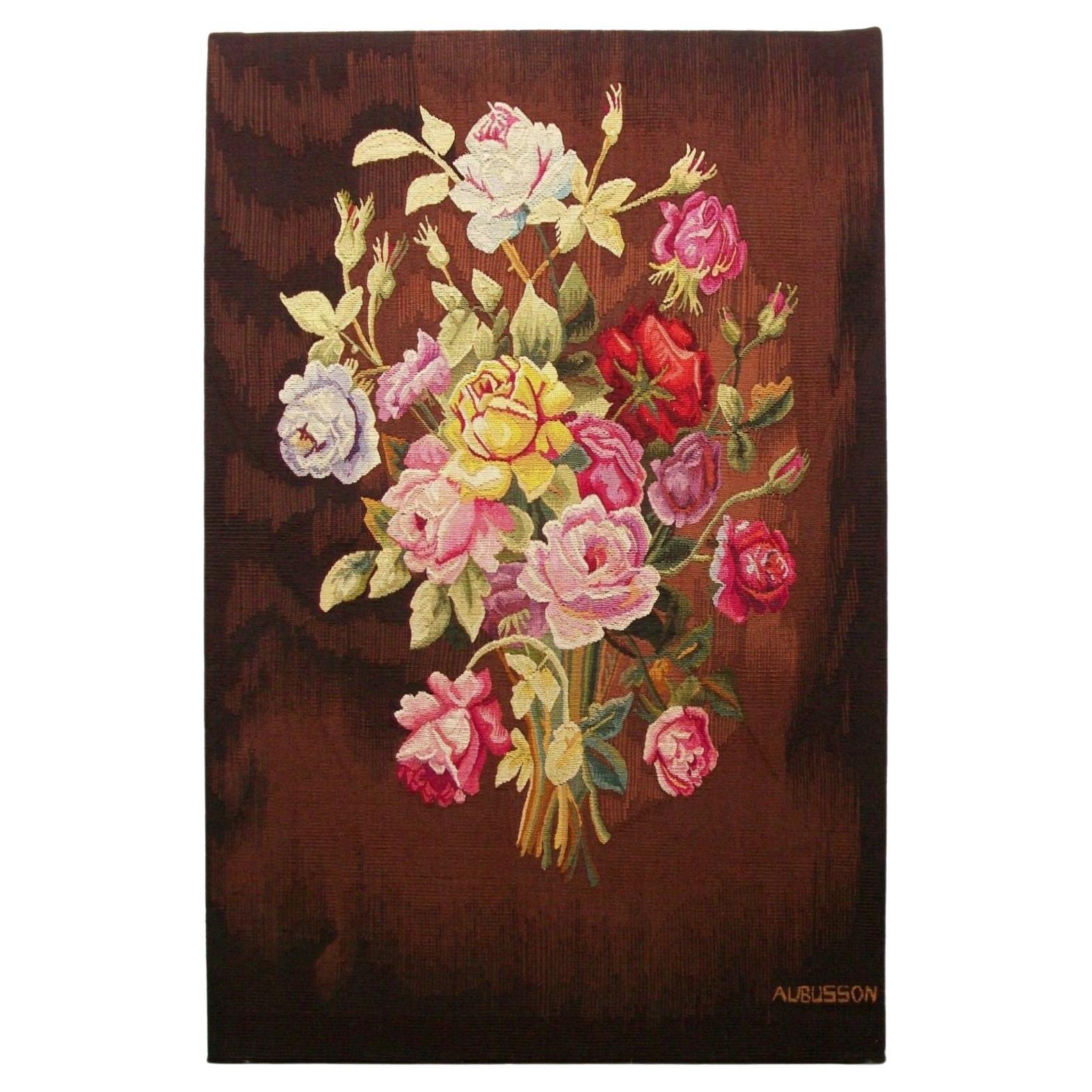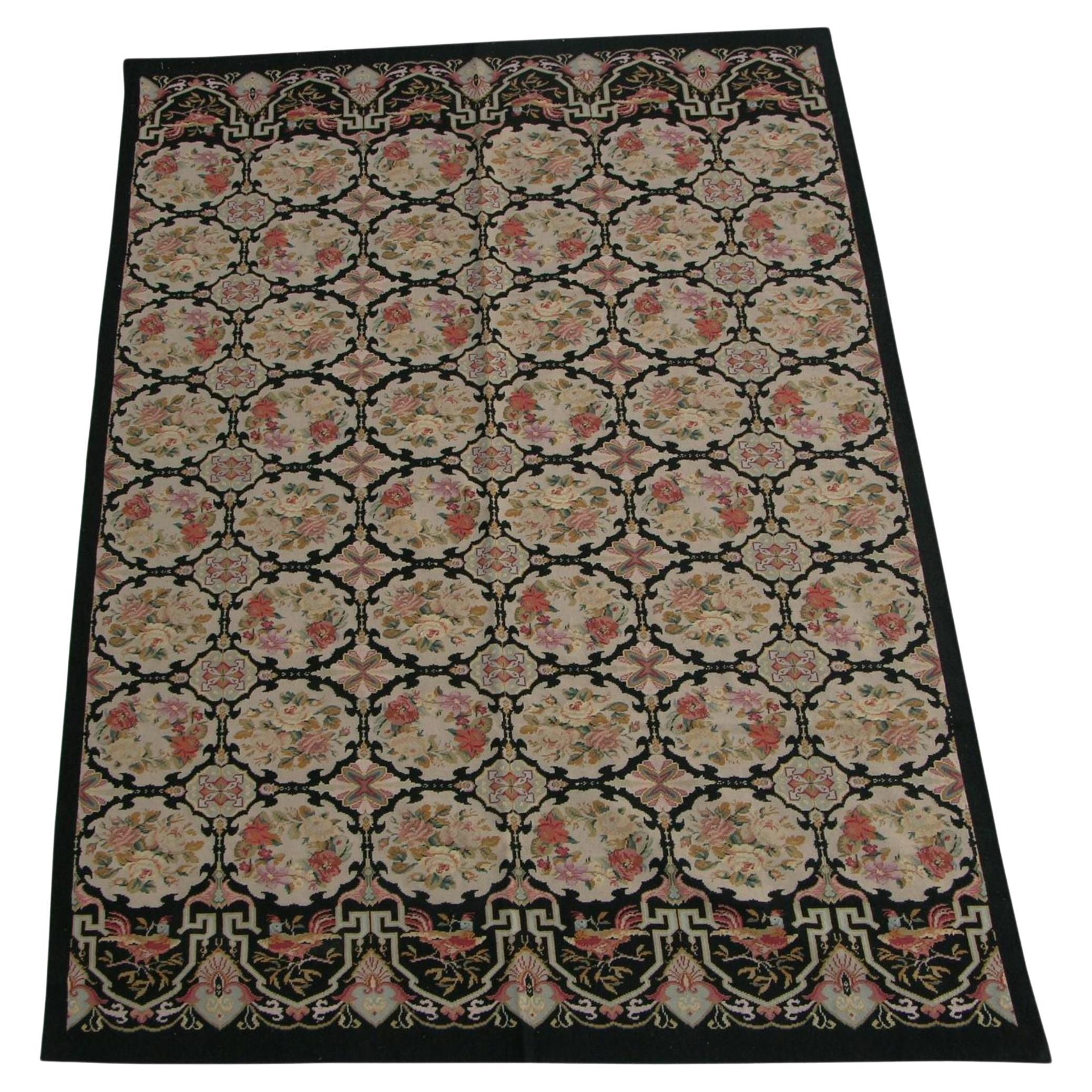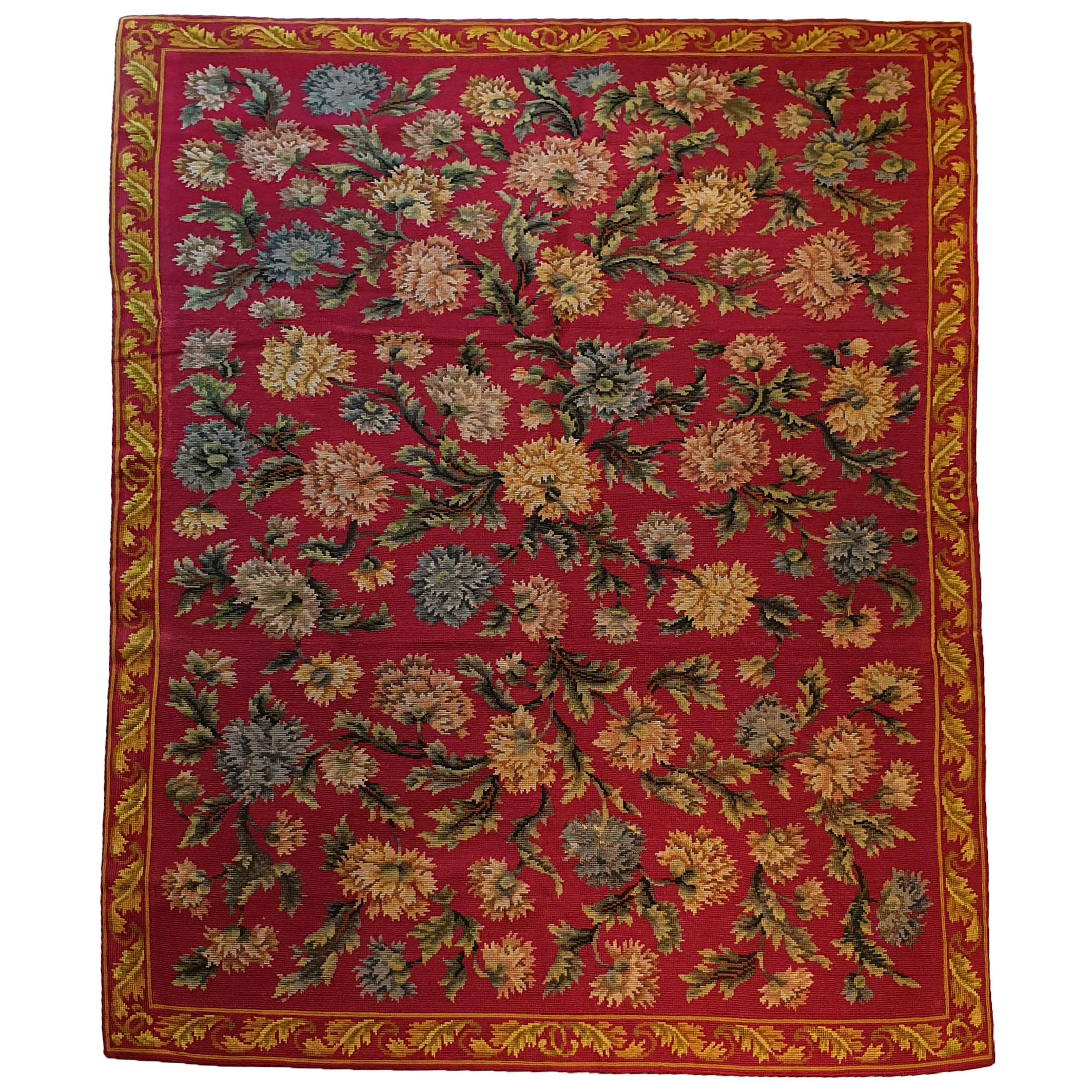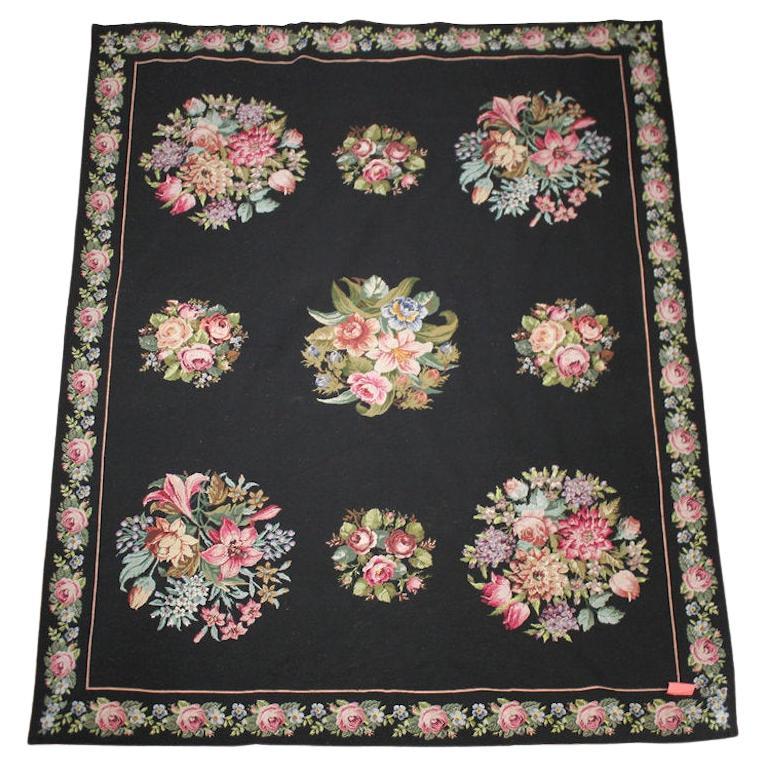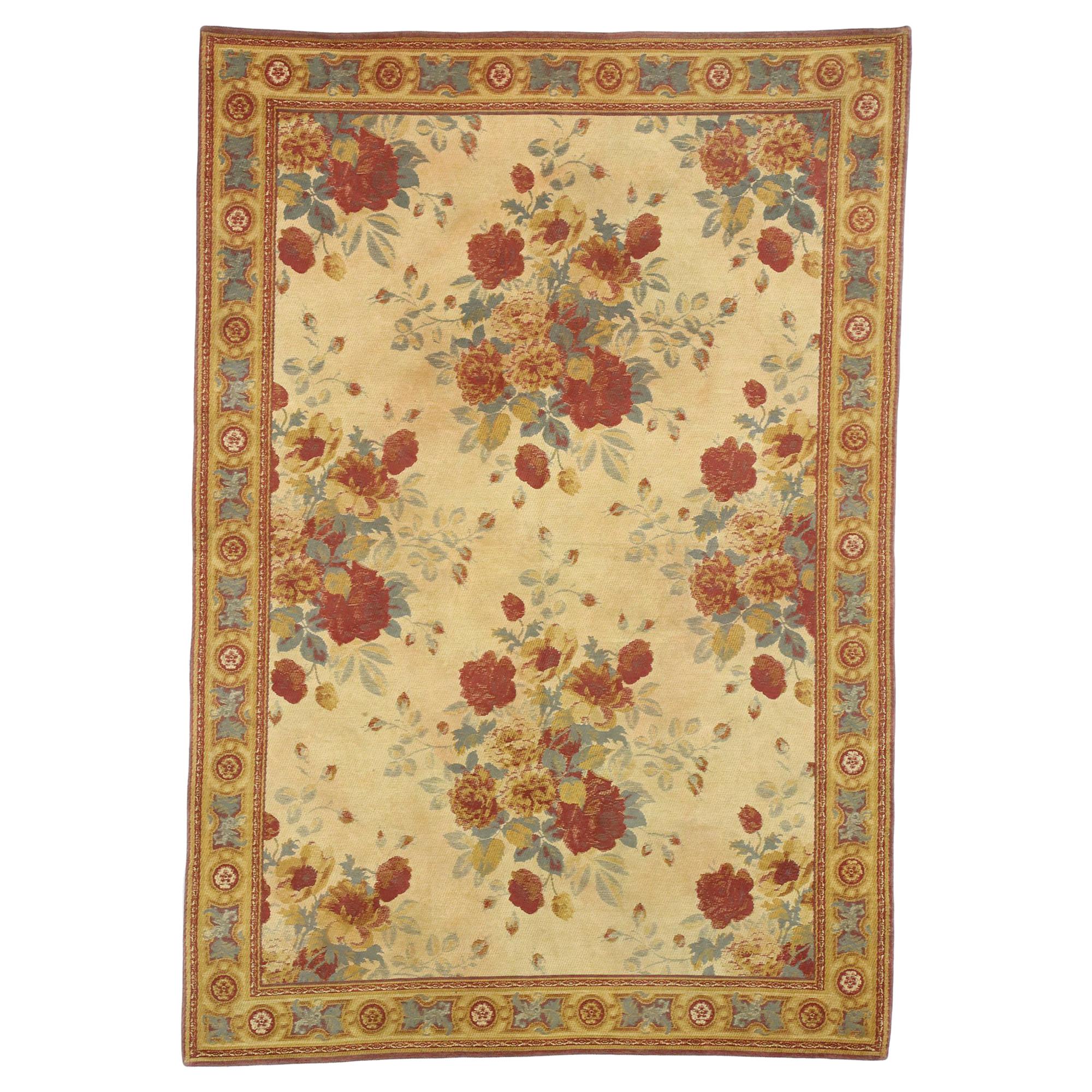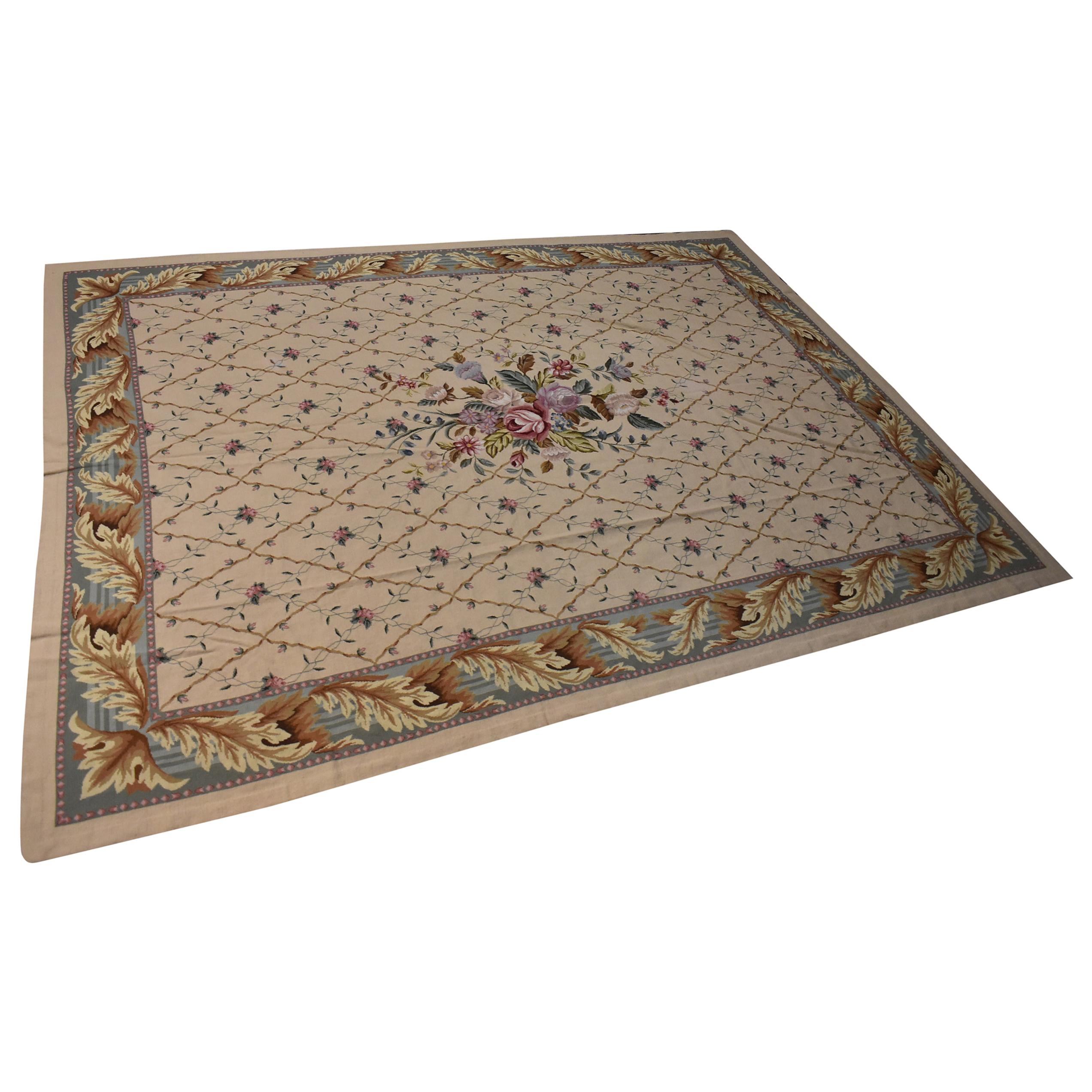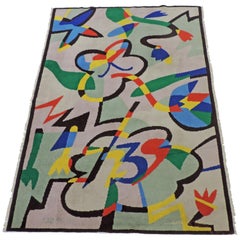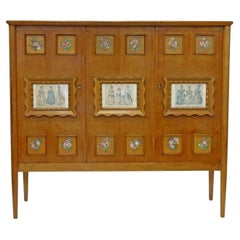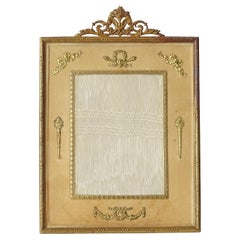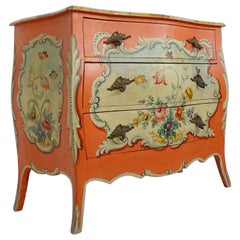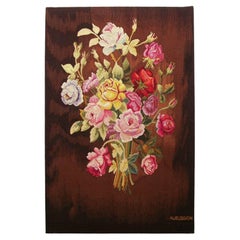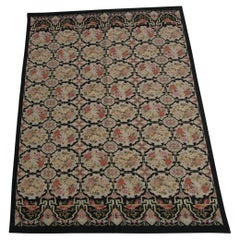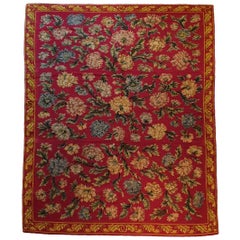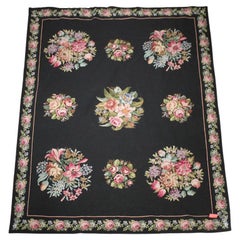Items Similar to Flowers and Roses Aubusson Tapestry/Carpet, Europe, 1930s
Want more images or videos?
Request additional images or videos from the seller
1 of 10
Flowers and Roses Aubusson Tapestry/Carpet, Europe, 1930s
$7,183.05
£5,298.60
€6,000
CA$9,952.47
A$10,799.95
CHF 5,723.02
MX$132,456.12
NOK 70,821.98
SEK 66,923.02
DKK 45,688.85
About the Item
Spectacular flowers and roses aubusson tapestry/carpet, Europe 1930s.
- Dimensions:Height: 0.12 in (3 mm)Width: 68.9 in (175 cm)Depth: 104.34 in (265 cm)
- Style:Art Deco (Of the Period)
- Materials and Techniques:
- Place of Origin:
- Period:
- Date of Manufacture:1930s
- Condition:Wear consistent with age and use. Would need a professional clean for the underneath cloth.
- Seller Location:Milan, IT
- Reference Number:1stDibs: LU952715567451
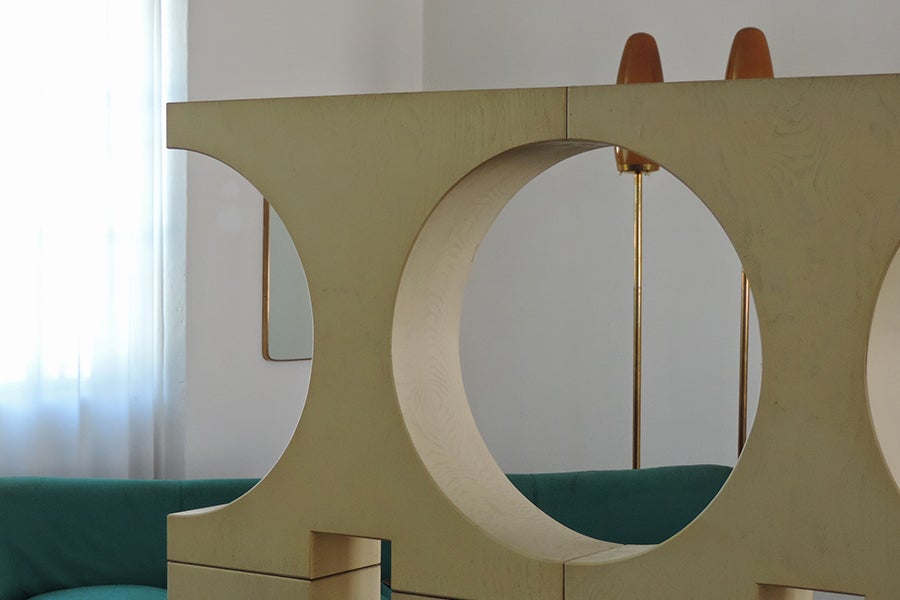
About the Seller
5.0
Platinum Seller
Premium sellers with a 4.7+ rating and 24-hour response times
Established in 2000
1stDibs seller since 2012
419 sales on 1stDibs
Typical response time: 1 hour
- ShippingRetrieving quote...Shipping from: Milan, Italy
- Return Policy
Authenticity Guarantee
In the unlikely event there’s an issue with an item’s authenticity, contact us within 1 year for a full refund. DetailsMoney-Back Guarantee
If your item is not as described, is damaged in transit, or does not arrive, contact us within 7 days for a full refund. Details24-Hour Cancellation
You have a 24-hour grace period in which to reconsider your purchase, with no questions asked.Vetted Professional Sellers
Our world-class sellers must adhere to strict standards for service and quality, maintaining the integrity of our listings.Price-Match Guarantee
If you find that a seller listed the same item for a lower price elsewhere, we’ll match it.Trusted Global Delivery
Our best-in-class carrier network provides specialized shipping options worldwide, including custom delivery.More From This Seller
View AllItalian Artist Ugo Nespolo Early Rug, Italy, 1970s
By Ugo Nespolo
Located in Milan, IT
Italian artist Ugo Nespolo early rug, Italy, 1970s.
Signed.
Category
Vintage 1970s Italian Post-Modern Western European Rugs
Materials
Wool
$4,788 Sale Price
20% Off
Paolo Buffa Wooden Cabinet with Flowers Ceramic Tiles and Fashion Prints, 1950s
By Paolo Buffa, Serafino Arrighi
Located in Milan, IT
Splendid Paolo Buffa Wooden Cabinet with wooden frames containing flowers decorated ceramic tiles, and larger central frames containing fashion prints,
Italy 1950s
Category
Vintage 1950s Italian Mid-Century Modern Cabinets
Materials
Brass
French Empire Style Table Picture Frame in Brass, Velvet and Glass
Located in Milan, IT
French Empire Style Table Picture Frame in Brass, Velvet and Glass
Category
Antique Early 1900s French Empire Picture Frames
Materials
Brass
Splendid Italian 1940s Flowers and Butterflies Painted Commode
Located in Milan, IT
Splendid Italian 1940s flowers and butterflies painted commode.
Category
Vintage 1940s Italian Mid-Century Modern Commodes and Chests of Drawers
Materials
Wood, Paint
Italian 1930s Pair of Wrought Iron Flowers Wall Decorations
Located in Milan, IT
Italian 1930s Pair of Wrought Iron and Gold Lacquer Flowers Wall Decorations
Category
Vintage 1930s Italian Art Deco Wall-mounted Sculptures
Materials
Wrought Iron
Large Florentine 1950s Engraved Wood and Coloured Lacquer Serving Tray
Located in Milan, IT
Large Florentine 1950s Engraved Wood and Coloured Lacquer Serving Tray
Category
Vintage 1950s Italian Mid-Century Modern Barware
Materials
Wood
You May Also Like
Vintage Aubusson Floral Tapestry Panel, Wool & Silk, France, Mid 20th Century
By Aubusson Manufacture
Located in Chatham, ON
Vintage Aubusson floral tapestry panel - hand woven with silk threads for the flowers and leaves and stems - set against a variegated brown wool background - suitable 'as is' for han...
Category
Mid-20th Century French Art Deco Tapestries
Materials
Wool, Silk
1950s Vintage Floral Design Needlepoint Rug
Located in Los Angeles, US
Ancient Roots Of Needlepoint Rugs
Archaeologists and scholars consider the roots of needlepoint to have been around 1500 BC. They consider the first needlepoint to include the fine diagonal stitches that were used to sew tents together by the ancient Egyptians. The art eventually evolved into tapestry weaving. However, a tapestry weaving differs significantly from needlepoint in that it uses a loom and vertical warp.
Tapestry weaving is closer to the weaving of kilims and pile rugs than canvas work. However, some still include tapestry weaving in the category of needlepoint because of the fine work that appeared during the late Renaissance. It can have a similar appearance to the untrained eye. Technically, tapestry weaving and needlepoint are not the same, and they do not use the same technique.
The first actual needlepoint rugs and needle-points began to appear in the late Renaissance. Needlepoint is worked by creating stitches on a stiff canvas. The canvas is typically made from jute or linen and is quite durable. Pieces from the Renaissance were used to cover footstools, chairs, pillows, bed headboards, and other furnishings. They were also used as table coverings and wall coverings. You could also find them on many small items such as purses, shoes, and various adornments for clothing.
During the Renaissance, the craft reached a high level of skill, and the designs became incredibly detailed and realistic. They mimicked many of the subjects and styles of famous paintings of the time. They created florals, still life designs, scenes, and geometric tiled pieces. Some of them mimicked the designs found in Persian Carpets.
Needlepoint reached its peak popularity in the 19th century when it was considered a proper occupation for a lady. Needlepoint and embroidery held a similar place in societal status at the time. During this time, the work became finer, with some of the canvas reaching a high level of detail. The level of detail is determined by counting the number of mesh in an inch. During this time petit point by French needlewomen could have a mesh count as high as 45 mesh. This allowed women to create highly intricate designs with incredible levels of detail.
Historical Needlepoint Carpets and Rugs
It is possible to find many antique pieces of needlepoint besides rugs. Needlepoint rugs were popular in France and Spain, where the technique was adapted to create highly intricate designs that mimicked the designs in architecture and fashion. They were popular because they were durable, and it could be fashioned into a variety of items. The canvases themselves were durable, and the wool that they used was also strong, which means that many of the pieces were able to withstand daily use. We have many artifacts that have survived from this time period.
Needlepoint rugs are important collectibles because they are different from the pile rugs and kilims that are typically found on the market. Needlepoint carpets are special because they take many hours to create, especially larger works. Needlepoint pieces of any type became popular throughout Europe during the 19th century. It is still a popular hobby today, but perhaps one of the most interesting stories is that of the Portuguese needlewomen of Arraiolos.
The story of these women and their beautiful carpets begins in 1492. Needlepoint was a popular occupation in Spain, which had a large population of Moors and Jews. They were an integral part of Spanish culture. However, in 1492, Queen Isabella of Spain issued a proclamation that gave these ethnic groups the order to pack their bags and board ships headed...
Category
Vintage 1950s Other Russian and Scandinavian Rugs
Materials
Wool
669 - 19th Century Needlepoint Rug Floral
Located in Paris, FR
669 - 19th century needlepoint rug floral.
Category
Antique 1880s French Aubusson Western European Rugs
Materials
Wool
Vintage Floral Needlepoint Rug Tapestry - 9’ W x 12’ L
Located in Pittsburgh, PA
This large-scale vintage needlepoint rug / tapestry features a striking black ground, punctuated by alternating large and small bouquets of multicolored flowers. The floral motifs ar...
Category
Late 20th Century American North and South American Rugs
Materials
Wool
Vintage English Country Style Tapestry with Peony & Rose Bouquets, Wall Hanging
Located in Dallas, TX
77243 vintage english country style tapestry with peony and rose bouquets, floral wall hanging 04'02 x 06'00. Warm and inviting, this English Country...
Category
Mid-20th Century English Country Western European Rugs
Materials
Wool, Cotton
Floral Tapestry Rug Roses Lattice Aubusson, Beauvais Style, 8'6" x 11' 10"
Located in Toledo, OH
Floral tapestry rug with roses and lattace designs in Aubusson - Beauvais style. Very nice condition. Dimensions: 106" W x 142" H. 8' 6" x 11' 10"
Category
20th Century Unknown Aubusson More Carpets
Materials
Wool
More Ways To Browse
Silk Sampler
Tapisserie Antique
Upholstered Wall Panels
18th Century Flemish Verdure Tapestry
Macrame Wall Hanging
Tufted Tapestry
Italian 19th Century Tapestry
Large 19th Century Tapestry
Marta Maas Wall Tapestry
Sheila Hick
1970s Macrame
Antique Chinese Silk Tapestry
Flanders Tapestry
Jean Baptiste Oudry
Miro Tapestry
Swedish Woven Wall Hanging
Woven Fiber Wall Art
Sheep Mount
